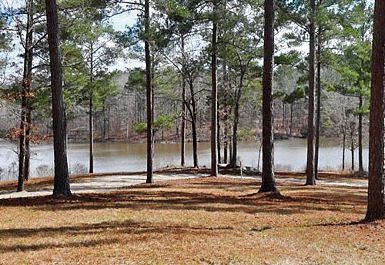Sell Land for Cash in North Carolina
North Carolina Land Buyers
Sell Land for Cash in North Carolina
North Carolina Land Buyers
Looking to sell your land fast in North Carolina? Whether you’re facing financial pressures, ready for a new investment, or simply eager to move on, selling land doesn’t have to be a drawn-out process. In this guide, we’ll cover practical steps to help you get your property sold quickly, without the headaches of traditional real estate methods. From setting the right price to marketing effectively, we’ll walk you through every step to ensure a smooth, efficient sale. Let’s dive into the best strategies to sell your North Carolina land fast!
Sell Your Vacant Land in North Carolina


Thinking of selling your land in North Carolina? Let’s chat! At Bubba Land Company, we’re not your typical buyers—we’re a family-run team that makes the process quick and easy. We understand selling land can be a hassle, but we’re here to make it smooth and fast. With all-cash offers and closing in under 30 days, you’ll have cash in hand with no need for bank approvals or financing headaches.
We specialize in buying vacant land directly from owners, skipping the middlemen and fees other companies charge. Our process is simple: we gather details about your property, conduct thorough research, and then make a fair, no-obligation cash offer. Whether you’re looking to sell quickly or simply want to get a competitive price, we’re here to buy and make the process painless. You decide if we’re the right fit—no pressure, no gimmicks.
At Bubba Land Company, we value honesty and clear communication. We know selling land can be an emotional decision, so we’re here to keep things transparent every step of the way. Whether your land is in North Carolina or South Carolina, we’re ready to buy and help you turn your property into cash fast.
If you’re looking for a stress-free, straightforward way to sell your land, contact us today. We’re a family business that treats you like family—offering a direct, reliable way to get the cash you need without the wait. Let us help you take the next step in your journey!

“Thank you, that went quiet well, and I got my check just before going on a 4-week vacation.”

“It was our pleasure working with you & your wife… Good luck to you & your company.”

“Thanks to you and your guidance. It was a pleasure working with you. I am so glad we did everything through a law firm. I even learned a lot on the way…”

“It was a delight working with you. Thank you for reaching out to buy my property.”
The Bubba Land Closing Process



If you need to sell your land fast, Bubba Land Company is here to help. We understand that life throws surprises, and we’ve made it simple to sell your land online quickly and easily. Dealing with back taxes or penalties? We’ll take care of those when we buy your property—no cost to you. Whether it’s unexpected financial burdens or tax liens, we’ll buy your land and offer a fair cash proposal that reflects your property’s true value. Our deep knowledge of North Carolina’s market allows us to make competitive offers that get you the cash you deserve.
By working with us, you skip the need for a Realtor, saving you time and money—no commissions or fees. Our goal is to get cash in your hands fast, often within days. We know every landowner has different needs, so we tailor our process to your unique situation. Selling your property should be stress-free, and we make sure of it with personalized solutions that meet your requirements.
As a family business, trust and transparency are at the heart of what we do. We’re committed to open communication, and we strive to make you feel confident in every step of the process. No matter the condition of your property—whether it has unpaid taxes, code violations, or legal issues—we’ll likely still be able to buy it. We offer a quick, fair cash proposal and can close fast, ensuring a smooth transaction from start to finish.
Once we agree on the sale, the process begins with a purchase agreement and opening an escrow account. Then, we handle inspections, title searches, and title insurance to ensure everything is in order before closing. Expect closing costs to be part of the process, and remember, if you have land in other states like Maryland, we can help there too!
North Carolina Counties Where We Buy Land
Seeking a trusted buyer for your land in North Carolina? Look no further. Our seasoned team specializes in purchasing various types of land across the state, from undeveloped rural acreage to city plots in Mecklenburg County, Wake County, Durham County, and beyond.
As specialists in real estate investments, we emphasize the importance of collaborating with a local real estate attorney to manage the purchase agreement and deed recording effectively. To streamline the transaction, we arrange for an escrow account, facilitating a smooth closing process free from any complications related to the title, ensuring you can quickly move on from your property without losing out to agent fees.
Whether it’s securing a cash payment for land in Forsyth County or arranging the sale of a plot in Guilford County, rest assured, we’re prepared to extend an equitable offer. Recognizing the distinct needs of each landowner, we pride ourselves on offering tailored solutions. Get in touch with us today to discover how we can assist in converting your North Carolina land into cash effortlessly.
North Carolina Cities Where We Buy Land
We make cash offers on land properties in Charlotte, Raleigh, Greensboro, and cities throughout the state of North Carolina. Our approach is customized to cater to your individual requirements, ensuring a rapid and smooth sale process. Reach out to us to uncover more about our process for acquiring vacant land and the ways we can facilitate converting your property into cash.
Final Tips to Sell My Land North Carolina
When it comes to buying and selling lots and land, working directly is often the smartest choice. Real estate agents typically don’t dedicate the same time or effort to land sales as they do for houses. Commissions are lower, and the land market tends to move slower. Listing a parcel on the MLS often inflates the price to cover agent commissions and additional fees, which cuts into your profit. With less focus on marketing, the land sits on the market, leading to price cuts again and again.
At Bubba Land Company, we specialize in land. We’ll give you a fair, all-cash offer for your property, backed by the knowledge and commitment to help you achieve your real estate goals. We’re ready to buy today—no need to wait on banks or deal with unnecessary fees and agents. You can sell your land quickly and for a great price! After reviewing your property, we’ll make you a simple, no-hassle cash offer. If you accept, we can close fast, on your schedule. It’s straightforward—you decide if the offer works for you.






